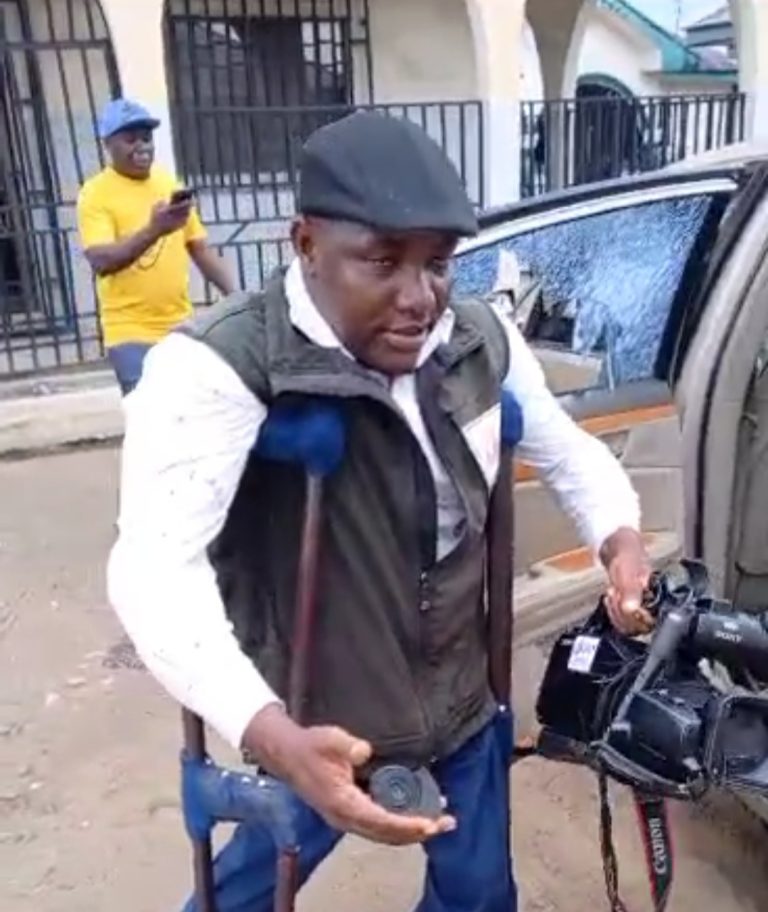A free press is essential for holding power accountable, especially during critical periods like elections.
Without it, democracy weakens, and the electorate is left vulnerable to manipulation and misinformation.
However, reverse is the case as the recent attack on journalists covering elections in Rivers State, particularly a Reporter from Nigeria’s foremost news agency, 9News Nigeria, raises significant concerns about press freedom and its implications for democracy in Nigeria.

Hoodlums, reportedly loyal to the Minister of the Federal Capital Territory, Nyesom Wike, brutally assaulted correspondent Emmanuel Atseyinku and his driver, damaging their equipment and threatening their safety.
This incident occurred in broad daylight, near a police station in Igwuruta, Rivers State, yet no immediate protection was provided.Such acts of violence against journalists erode the fundamental right to free press, which is crucial to a functioning democracy.
When journalists are attacked for simply performing their duties, it not only threatens their lives but also undermines the public’s right to receive accurate and unbiased information.
The ongoing unrest in Rivers State, as loyalists of Wike protest against Governor Siminialayi Fubara’s decision to hold local elections despite a court ruling, further complicates the situation.
With political tensions high and security forces reportedly withdrawing from participation in the election process, the role of the media becomes even more critical.
However, when journalists are targeted, it signals a dangerous trend of suppressing dissenting voices and controlling narratives, which is antithetical to democratic principles.
The inability of the police to ensure the safety of journalists and citizens during this time is also concerning. It points to a broader issue of impunity and the state’s failure to protect the rights of individuals, including the press.
If Nigeria’s democracy is to thrive, the rights of journalists must be safeguarded, and those responsible for such attacks must be held accountable.
Without these protections, the pillars of democracy, including transparency, accountability, and free expression, are at risk of crumbling.